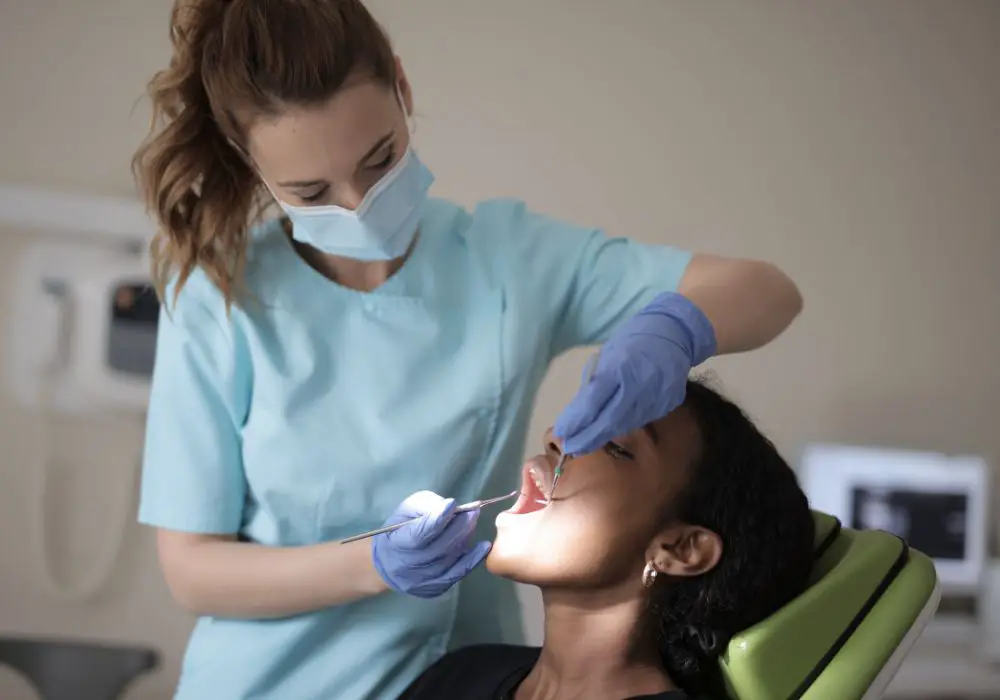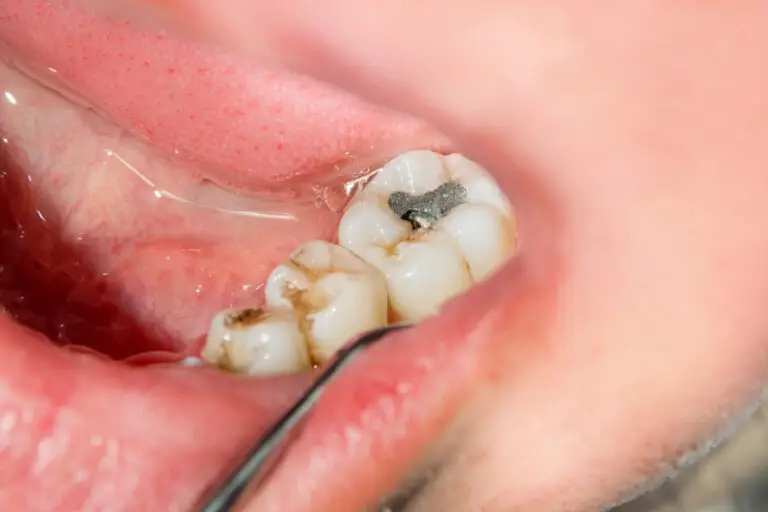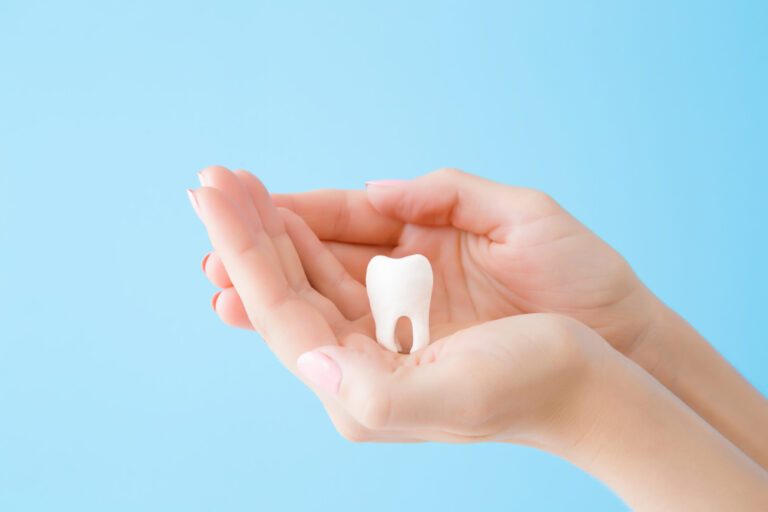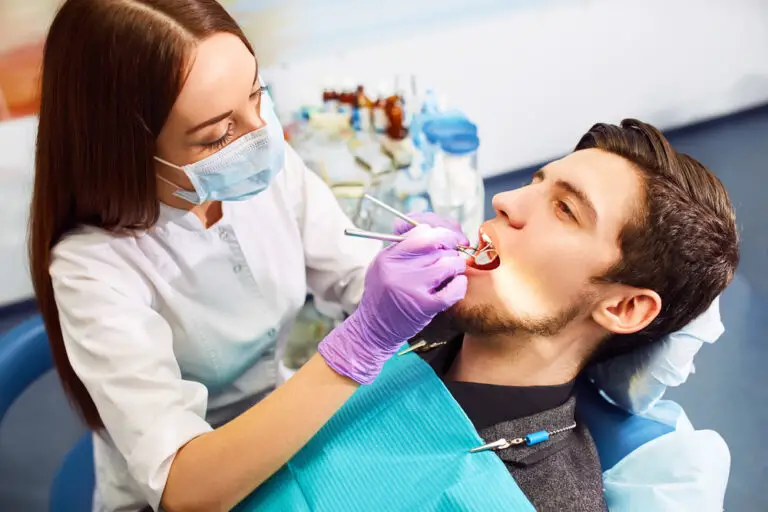If you or a loved one has been diagnosed with cancer, you may be wondering about the potential impact on your dental health. While cancer itself does not directly cause teeth problems, the treatments used to fight cancer can have negative effects on your oral health. In fact, dental issues can cause delays in cancer treatment, so it’s important to take steps to prevent problems before treatment begins.
Chemotherapy and radiation therapy are two common cancer treatments that can cause dental problems. Chemotherapy can weaken the immune system, making it easier for bacteria to grow in the mouth and leading to infections and other dental issues. Radiation therapy can cause dry mouth, which can lead to tooth decay and other oral health problems. Additionally, both treatments can cause mucositis, a painful inflammation of the mouth and throat that can make it difficult to eat and drink.
Understanding Cancer
If you or a loved one has been diagnosed with cancer, it can be a difficult and overwhelming experience. Cancer is a disease that occurs when abnormal cells in the body grow out of control, forming tumors or invading other tissues. There are many different types of cancer, each with its own unique characteristics and treatment options.
Cancer can affect many parts of the body, including the mouth and teeth. Cancer treatments such as chemotherapy and radiation therapy can cause damage to the teeth and gums, leading to tooth loss and other dental problems. It is important for cancer patients to maintain good oral hygiene and work closely with a dental professional to manage any side effects.
Some common types of cancer that can affect the mouth and teeth include oral cancer, which affects the lips, tongue, and other parts of the mouth, and head and neck cancer, which can affect the throat, sinuses, and other areas. These types of cancer can cause symptoms such as mouth sores, difficulty swallowing, and changes in taste or smell.
If you are undergoing cancer treatment, it is important to be aware of the potential dental side effects and take steps to prevent them. This may include regular dental check-ups, using fluoride toothpaste, and avoiding certain foods and drinks that can damage the teeth and gums.
Remember, cancer can be a challenging and difficult experience, but with the right support and resources, you can manage your symptoms and improve your overall quality of life.
Cancer and Oral Health
When you are diagnosed with cancer, it is important to take care of your oral health as well. Cancer and its treatment can cause a variety of dental and oral health problems, including:
- Mouth sores
- Tooth decay
- Difficulty swallowing
- Difficulty chewing or opening the mouth
- Infection
- Bone disease
- Inflammation or pain in the lining of the mouth and tongue
- Higher risk of tooth decay or gum disease
To prevent these problems, the National Cancer Institute (NCI) recommends that you visit your dentist before cancer treatment begins. Your dentist can help identify any existing dental problems and provide treatment before cancer treatment begins.
During cancer treatment, it is important to continue to take care of your oral health. Here are some tips to help:
- Brush your teeth twice a day with a soft-bristled toothbrush and fluoride toothpaste.
- Floss daily to remove plaque and food particles from between your teeth.
- Rinse your mouth with a fluoride mouthwash or saltwater solution to help prevent infection.
- Avoid smoking and using tobacco products, as they can increase your risk of oral cancer.
- Eat a healthy diet rich in fruits and vegetables to help maintain your overall health.
If you experience any dental or oral health problems during cancer treatment, be sure to talk to your healthcare team. They may be able to provide treatment or refer you to a dental specialist for help.
Common Dental Problems in Cancer Patients

Cancer and its treatments can cause a variety of dental problems. Here are some common dental problems that cancer patients may experience:
Tooth Decay
Tooth decay is a common dental problem that cancer patients may experience. This is because cancer treatments such as chemotherapy and radiation therapy can weaken the enamel on teeth, making them more susceptible to decay. Additionally, cancer patients may have a dry mouth, which can also contribute to tooth decay.
To prevent tooth decay, it is important to maintain good oral hygiene. Brush your teeth twice a day with a fluoride toothpaste and floss at least once a day. You may also want to use a fluoride mouthwash to help prevent tooth decay.
Gum Disease
Gum disease is another common dental problem that cancer patients may experience. This is because cancer treatments can weaken the immune system, making it harder for the body to fight off infections such as gum disease.
To prevent gum disease, it is important to maintain good oral hygiene. Brush your teeth twice a day with a fluoride toothpaste and floss at least once a day. You may also want to use an antiseptic mouthwash to help prevent gum disease.
Mouth Sores
Mouth sores are a common side effect of cancer treatments such as chemotherapy and radiation therapy. These sores can be painful and make it difficult to eat, drink, and talk.
To prevent mouth sores, it is important to maintain good oral hygiene. Brush your teeth twice a day with a soft-bristled toothbrush and floss at least once a day. You may also want to use a gentle mouthwash. If you do develop mouth sores, talk to your dentist or doctor about ways to manage them.
In summary, cancer and its treatments can cause a variety of dental problems, including tooth decay, gum disease, and mouth sores. To prevent these problems, it is important to maintain good oral hygiene and work closely with your dentist or doctor.
Preventive Measures for Dental Health in Cancer Patients
As a cancer patient, you may be at a higher risk of developing dental problems due to the side effects of cancer treatment. However, there are several preventive measures you can take to maintain good oral health during and after cancer treatment. Here are some tips to follow:
Regular Dental Check-ups
Regular dental check-ups are essential for cancer patients to prevent dental problems. You should visit your dentist before starting cancer treatment to identify any existing dental problems and get them treated. During cancer treatment, you should continue to see your dentist regularly to monitor your oral health and address any issues that may arise.
Proper Oral Hygiene
Proper oral hygiene is crucial for cancer patients to maintain good oral health. You should brush your teeth twice a day with a fluoride toothpaste and floss daily to remove plaque and prevent tooth decay. Additionally, you may need to use a mouth rinse or gel recommended by your dentist to prevent oral sores and other side effects of cancer treatment.
Dietary Changes
Dietary changes can also help prevent dental problems in cancer patients. You should avoid sugary and acidic foods and drinks that can erode your tooth enamel and increase your risk of cavities. Instead, focus on eating a balanced diet rich in fruits, vegetables, and whole grains to promote good oral health.
By following these preventive measures, you can maintain good oral health during and after cancer treatment. Remember to consult with your dentist and oncologist to develop a personalized plan for your dental care based on your specific needs and medical history.
Dental Treatment Considerations for Cancer Patients

If you have been diagnosed with cancer, it is important to understand that the treatment can affect not only your overall health but also your dental health. Cancer treatments such as chemotherapy, radiation therapy, and surgery can cause oral side effects that can lead to dental problems. Here are some dental treatment considerations for cancer patients that you should keep in mind.
Before Cancer Treatment
Before starting cancer treatment, you should visit your dentist for a comprehensive dental exam. This will help identify any existing dental problems that may need to be addressed before treatment begins. It is recommended that you see your dentist at least four weeks before starting cancer treatment to allow for any necessary dental work to be completed and for the mouth to heal.
During this visit, your dentist will evaluate your oral health and provide you with advice on how to maintain good oral hygiene during cancer treatment. Your dentist may also recommend fluoride treatments, which can help prevent tooth decay and strengthen your teeth.
During Cancer Treatment
During cancer treatment, it is important to maintain good oral hygiene to prevent dental problems. Here are some tips to help you take care of your teeth and gums during cancer treatment:
- Brush your teeth twice a day with a soft-bristled toothbrush and fluoride toothpaste.
- Floss daily to remove food particles and plaque from between your teeth.
- Rinse your mouth with a saltwater solution to soothe mouth sores and prevent infection.
- Use a saliva substitute if you experience dry mouth.
It is also important to avoid certain foods and drinks that can irritate your mouth, such as spicy or acidic foods, alcohol, and tobacco products.
After Cancer Treatment
After cancer treatment, it is important to continue to take care of your dental health. You should visit your dentist regularly for checkups and cleanings to monitor any dental problems that may have arisen during treatment.
You may also need to have dental work done, such as fillings or extractions, if cancer treatment has caused damage to your teeth or gums. Your dentist can help you develop a dental treatment plan that is tailored to your specific needs.
In conclusion, cancer treatment can have a significant impact on your dental health. By taking proactive steps to maintain good oral hygiene and seeking dental care before, during, and after treatment, you can help prevent dental problems and maintain a healthy smile.
Frequently Asked Questions
Can cancer treatment lead to dental problems?
Yes, cancer treatment can lead to dental problems. Chemotherapy and radiation therapy can cause damage to the teeth and gums, as well as decrease saliva production, which can increase the risk of tooth decay and gum disease.
What are the long-term effects of chemotherapy on teeth?
Chemotherapy can cause long-term effects on teeth, such as tooth decay, tooth loss, and gum disease. These effects can be caused by a weakened immune system, decreased saliva production, and increased risk of infection.
How does cancer affect oral health?
Cancer can affect oral health by causing dental problems such as tooth decay, tooth loss, and gum disease. Cancer treatment can also lead to dry mouth, which can increase the risk of tooth decay and gum disease.
Can cancer cause tooth decay and loss?
Yes, cancer can cause tooth decay and loss. Chemotherapy and radiation therapy can damage the teeth and gums, as well as decrease saliva production, which can increase the risk of tooth decay and gum disease.
Are there free dental treatments available for cancer patients?
Yes, there are free dental treatments available for cancer patients. The National Institute of Dental and Craniofacial Research (NIDCR) offers free dental care to eligible cancer patients through its Dental Clinical Trials Program.
Do cancer patients commonly experience dental issues?
Yes, cancer patients commonly experience dental issues. These issues can be caused by cancer treatment, such as chemotherapy and radiation therapy, and can include tooth decay, tooth loss, and gum disease. It is important for cancer patients to maintain good oral hygiene and visit their dentist regularly to prevent and treat dental problems.






